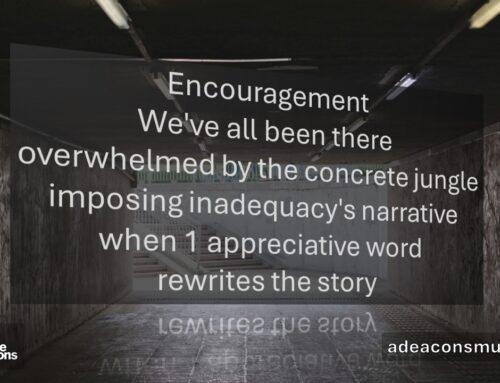I have been thinking a lot about control and what it means for communities of faith? What does it mean for Christianity as it enters a time and context when we are no longer at the ‘centre’ of it all? Some call this previous centre ‘Christendom:’ a time when the Christian faith was taken for granted and everyone was (by implication) Christian, even if they did not necessarily believe.
This Christendom phase, if you will, was particularly prevalent in the ‘western’ world. It has left many legacies that range from those which can be celebrated to those that continue to stand and implicate us. In particular, such implications have been expressed in the manner in which Christendom’s assumptions led to a misuse of privilege and power. What we thought was normal, and what we therefore tried to change if it was deemed abnormal, has caused harm. These injuries remain as open sores and scars, which are still present and continue to require healing.
I have also been thinking about control more particularly in my own ministry context. Shortly, I will begin holidays and then enter a time of Sabbatical. A time in which Christians endeavour to rejuvenate, reflect, relax and renew. Sabbath is a gift that is grounded in our Sacred Stories. It is a time in which God encourages people to let go of control and simply be, in order to experience the ever-present-whispering that is the Holy. In this place, we may learn, we may confront our own assumptions; we may very well be transformed …
Approaching this Sabbath, therefore, has me thinking of control. Personally, it means letting go of some stuff in my ministry at UCiM that might feel … well – challenging! Living out one’s faith means – often – that one’s identity can become connected with the ‘visible’ signs of our faithful and good works. Whether that is the social media aspect of UCiM’s ministry, technology components of worship, or the people with whom I have had the privilege to journey and share their stories, I will have to let go and trust that what will be, will be. Acquiescing is a choice and – hopefully – when done with intention – new things begin …
I have also been thinking about control in respect to UCiM’s choices and responses as I approach Sabbath. Part of me thinks there is a connexion (or parallel) with the idea of leadership. The areas in which I have offered ministry are models – I hope – of leadership. This does not mean that I have the answers or it’s my way or the highway. Rather – again with hope – ministry can be seen as the gift of claiming individual strengths and passions, in order to share what Christians call the Good News. The message, at its simplest, is the radical idea of love. Not love as a way to control, but love in the freedom that comes with recognising that we are all a gift, a blessing and waking to that reality means finding ways to share that with others who are at a point on their own journey to hear that. It’s not about forcing, converting or coercing. I wonder what leadership will look like as I begin to journey into Sabbath and what new things will be present when I arrive?
The model of Christendom grounded in hierarchy, patriarchy, and paternalism led to a skewed vision of colonialism. Perhaps there was some core intent that can be reclaimed, perhaps even redeemed, but the explicit damage that came with millennia of the illusion of having the right answers remains a testament to the challenge of what leadership looks like now as we embrace diversity and the potential freedom in letting go of control.
I do not know what a post-Christendom Christianity looks like. I do not know what UCiM might look like when I get back from Sabbatical, but I do know that letting go of control means people will have to make choices: Choices to continue this; stop that; and start that.







Your reflections are most welcome!